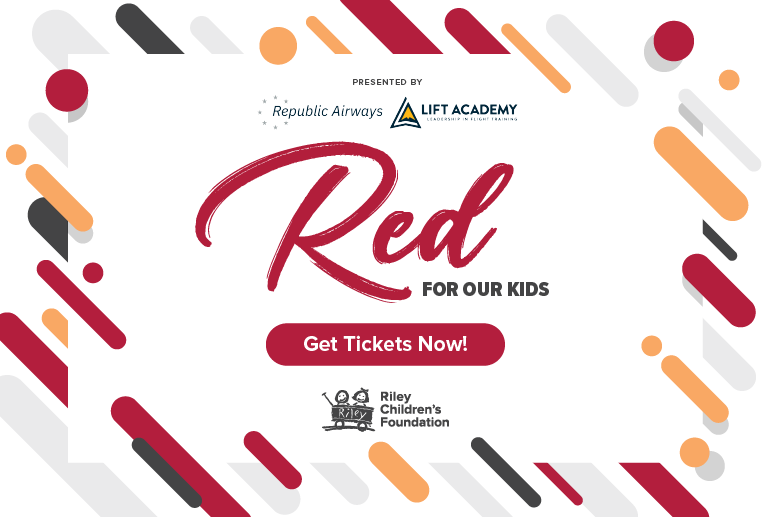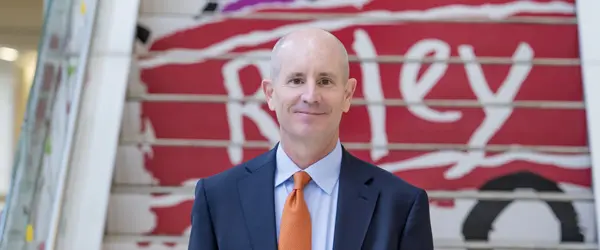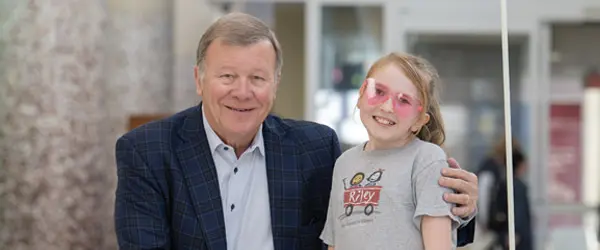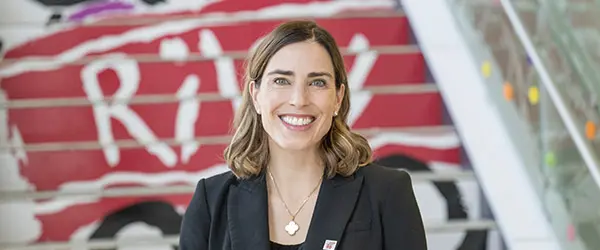Meet Dr. Rodríguez and Dr. Broderick
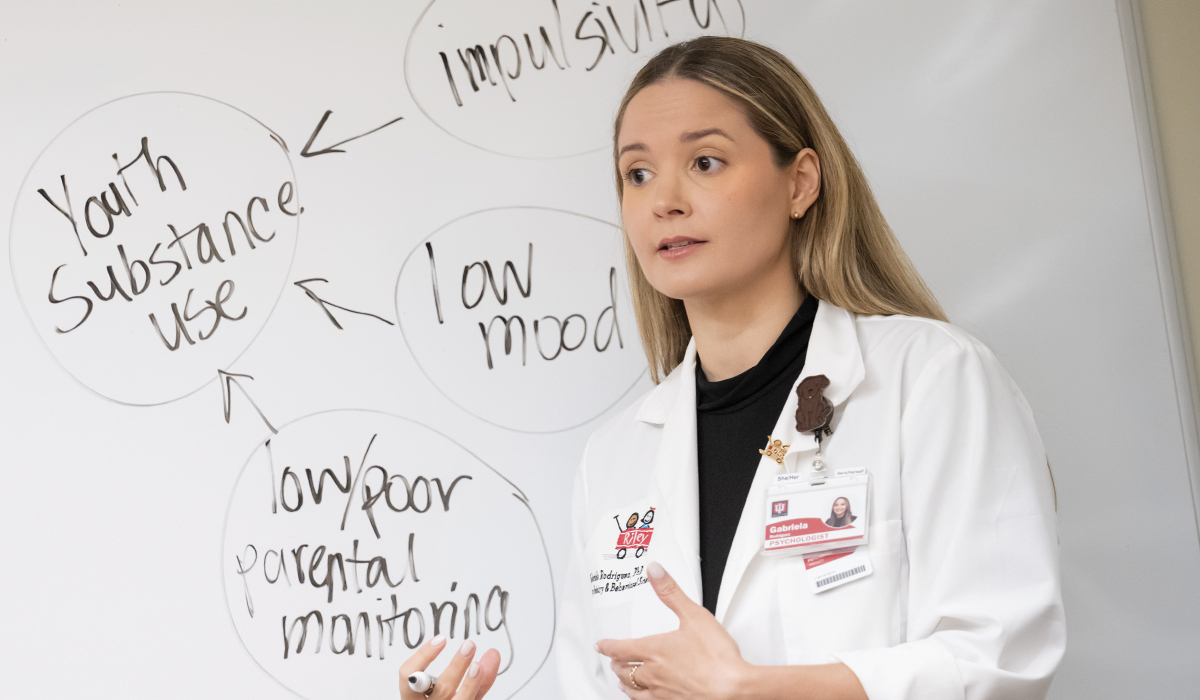
When you support Child and Adolescent Behavioral Health through Riley Children’s Foundation, you’re making a lasting and meaningful impact on the mental health of Indiana’s youth. Your generosity helps ensure every child has ready access to compassionate and expert mental health care through vital programs such as Riley Children’s Health Multisystemic Therapy (MST) Program.
Riley MST is a family and community-based intervention that addresses the core causes of juvenile delinquency behaviors in youth ages 12-17. Gabriela M. Rodríguez, PhD, HSPP and Amanda V. Broderick, PhD, HSPP, clinical psychologists at Riley Children’s Health and faculty members at Indiana University School of Medicine, work with MST therapists around the clock to empower at-risk youth and their families to develop healthier home environments. The ultimate goals are improving youth mental health and reducing unwanted behaviors.
Riley is the only place in Indiana that provides MST before youth become involved in the juvenile justice or child welfare systems, giving kids their best chance to avoid life-altering, long-term consequences.
In recognition of Mental Health Awareness Month, we spoke with Dr. Rodríguez and Dr. Broderick to learn more about how providing access to mental health care like MST is essential to transforming the lives of troubled youth across Indiana.
How have you seen lives change for those receiving care through programs like Riley MST?
Youth are eligible for MST if they are engaged in acting out behaviors that could lead to serious consequences like arrest, school expulsion, or being removed from the home. Between October 2022 and April 2025, 46 youths were seen in the Riley MST program. By the end of treatment, 91 percent of youth were living at home, 87 percent were in school or working, and 91 percent had no new arrests. - Dr. Rodríguez
What is one thing more people should understand about the mental and behavioral health challenges that today’s youth are facing?
When it comes to youth's disruptive behaviors, parents and caregivers can be powerful change agents to reduce these behaviors. However, few resources exist to support caregivers in learning how to do this — how to navigate complex systems like the mental health or juvenile justice systems, how to respond effectively to challenging behaviors, how to reduce involvement with negative peers, etc. Caregivers are left feeling isolated and ineffective. People should understand just how valuable programs that support caregivers are. - Dr. Broderick
What do you find most rewarding about your and your team’s work?
Often when families are referred to MST, they come to us having tried many different programs and interventions and feel hopeless that nothing will work for their child. One of the most rewarding things is to be able to explain how MST works and provide hope that their child may have a better outcome than the current trajectory they are on. It feels good to be able to provide families with the support and knowledge they need to improve their child’s behaviors. - Dr. Broderick
If you could share a message with Riley Children’s Foundation donors who support this priority, what would you say?
It is only with the support of Riley Children’s Foundation donors that the Riley MST program will be able to continue to provide high-quality, evidence-based mental health care to high-risk youth before they become system involved. Intervening early is essential to achieving the best outcomes for our Hoosier kids and we can’t thank our donors enough for their support. - Dr. Rodríguez
Every child deserves mental health care
Sign up for our newsletter
Join 140,000 Riley supporters receiving the latest news, updates and uplifting Riley kid stories in their inbox once every week.
